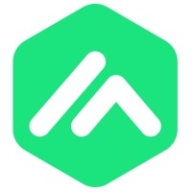

Talend Open Studio and Matillion Data Productivity Cloud compete in the data integration solutions category. Talend Open Studio holds an upper hand in open-source availability and flexibility, while Matillion shines with its ease of use in cloud environments.
Features: Talend Open Studio is lauded for its flexibility, with extensive connectors supporting various data sources, which is ideal for comprehensive ETL processes. Its open-source nature and community support are valuable for developers seeking customization. Matillion Data Productivity Cloud stands out for its graphical interface, enabling complex ETL tasks with minimal coding, and integrates seamlessly with AWS, enhancing deployment and scalability in cloud environments.
Room for Improvement: Talend Open Studio's user interface could be more intuitive, and enhancements in CDC features and geospatial data support are needed. Matillion could benefit from improved connectivity solutions and enhanced concurrent workflow processing. Better integration with additional data sources and improved pricing models would enhance its competitiveness.
Ease of Deployment and Customer Service: Talend Open Studio offers deployment flexibility across on-premises and hybrid cloud environments, though it relies heavily on community forums for support. Matillion's deployment process is straightforward, particularly in AWS environments, with its customer service leveraging AWS Marketplace processes for efficiency.
Pricing and ROI: Talend Open Studio's open-source model provides basic functionality at no initial cost, although licensing for collaborative features can increase expenses. Matillion’s cloud-centric model charges per usage, offering predictable yet potentially higher costs. Both solutions deliver significant ROI by boosting productivity and operational efficiency.
Consequently, we adjusted our processes to use Matillion Data Productivity Cloud only for extraction and ingestion, while Snowflake handled all transformations and jobs.
They communicate effectively and respond quickly to all inquiries.
Depending on the nature of data sets, volume, and mixture of different data, the scalability could be improved as manual code writing is still required.
The autoscale process works well, allowing the system to start another node automatically if the first machine reaches 80% capacity.
The main areas for improvement are AI features and scalability.
Connections to BigQuery for extracting information are complex.
If we could have round-the-clock support, we would be able to resolve many issues which we encounter during the development part.
Matillion Data Productivity Cloud offers discounts and special deals, especially when dealing with high-volume clients or fewer existing clients in specific regions, like Spain.
The pricing is moderate, neither expensive nor cheap.
The predefined connectors eliminate the need to write code for connectivity.
Matillion Data Productivity Cloud is effective for ingest functions, particularly when moving information to Snowflake and performing many transformations.
It also comes with a console which helps us to monitor the jobs we have built in, making that monitoring part easy.
| Product | Market Share (%) |
|---|---|
| Talend Open Studio | 3.0% |
| Matillion Data Productivity Cloud | 5.1% |
| Other | 91.9% |


| Company Size | Count |
|---|---|
| Small Business | 6 |
| Midsize Enterprise | 10 |
| Large Enterprise | 11 |
| Company Size | Count |
|---|---|
| Small Business | 22 |
| Midsize Enterprise | 13 |
| Large Enterprise | 18 |
Matillion Data Productivity Cloud features an intuitive graphical interface, seamless AWS integration, and efficient data management. Its tools streamline complex tasks for SFDC, RDS, Marketo, Facebook, and Google AdWords.
Matillion Data Productivity Cloud provides fast transformations with built-in verification, easy scheduling, and sampling. With automatic scalability and diverse data source support, it simplifies complex data tasks. Users benefit from cloud data warehousing and integrating data into Snowflake while appreciating its ease of use by non-technical teams. Enhancements can focus on frequent API adjustments, improved documentation, faster performance with less latency, and better error handling.
What are the key features of Matillion Data Productivity Cloud?
What benefits and ROI should users seek in reviews?
In industries such as technology, finance, and healthcare, Matillion Data Productivity Cloud is implemented to streamline ETL processes, optimize data pipeline construction, and enhance data migration efforts. It supports efficient data loading and integration between cloud and on-premises databases, aiding industries in managing data-driven projects.
Talend Open Studio is a free, open source ETL tool for data integration and Big Data. The solution enables you to extract diverse datasets and normalize and transform them into a consistent format which can be loaded into a number of third-party databases and applications.
Talend Open Studio Features
Talend Open Studio has many valuable key features. Some of the most useful ones include:
Talend Open Studio Benefits
There are several benefits to implementing Talend Open Studio. Some of the biggest advantages the solution offers include:
Reviews from Real Users
Below are some reviews and helpful feedback written by PeerSpot users currently using the Talend Open Studio solution.
Elio B., Data Integration Specialist/CTO at Asset messages, says, "The solution has a good balance between automated items and the ability for a developer to integrate and extend what he needs. Other competing tools do not offer the same grade of flexibility when you need to go beyond what is provided by the tool. Talend, on the other hand, allows you to expand very easily."
A Practice Head, Analytics at a tech services company mentions, “The data integration aspect of the solution is excellent. The product's data preparation features are very good. There's very useful data stewardship within the product. From a technical standpoint, the solution itself is pretty good. There are very good pre-built connectors in Talend, which is good for many clients or businesses, as, in most cases, companies are dealing with multiple data sources from multiple technologies. That is where a tool like Talend is extremely helpful.”
Prerna T., Senior System Executive at a tech services company, comments, “The best thing I have found with Talend Open Studio is their major support for the lookups. With Salesforce, when we want to relate our child objects to their parent object, we need to create them via IDs. Then the upsert operation, which will allow you to relate a child object to the event, will have an external ID. That is the best thing which keeps it very sorted. I like that.”
An Implementation Specialist, Individual Contributor at a computer software company, states, “I can connect with different databases such as Oracle Database or SQL Server. It allows you to extract the data from one database to another. I can structure the data by filtering and mapping the fields.” He also adds, “It is very user-friendly. You need to know the basics of SQL development or SQL queries, and you can use this tool.”
PeerSpot user Badrakh V., Information System Architect at Astvision, explains, "The most valuable features are the ETL tools."
We monitor all Cloud Data Integration reviews to prevent fraudulent reviews and keep review quality high. We do not post reviews by company employees or direct competitors. We validate each review for authenticity via cross-reference with LinkedIn, and personal follow-up with the reviewer when necessary.